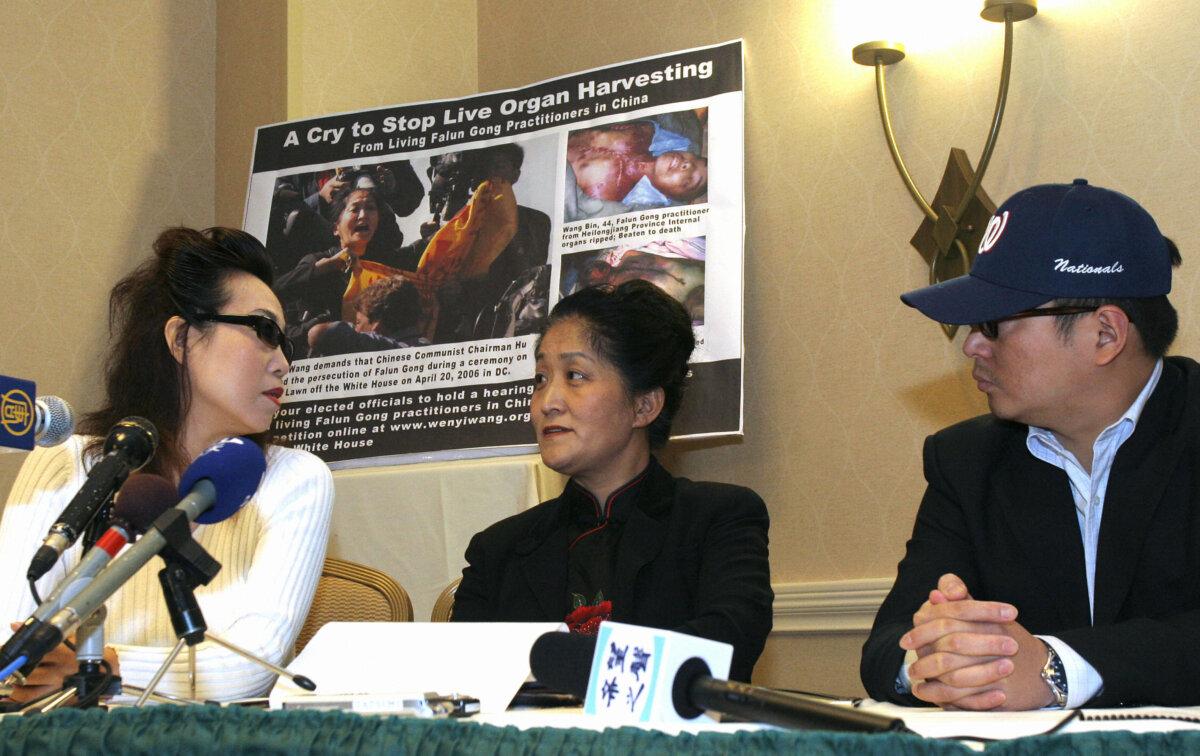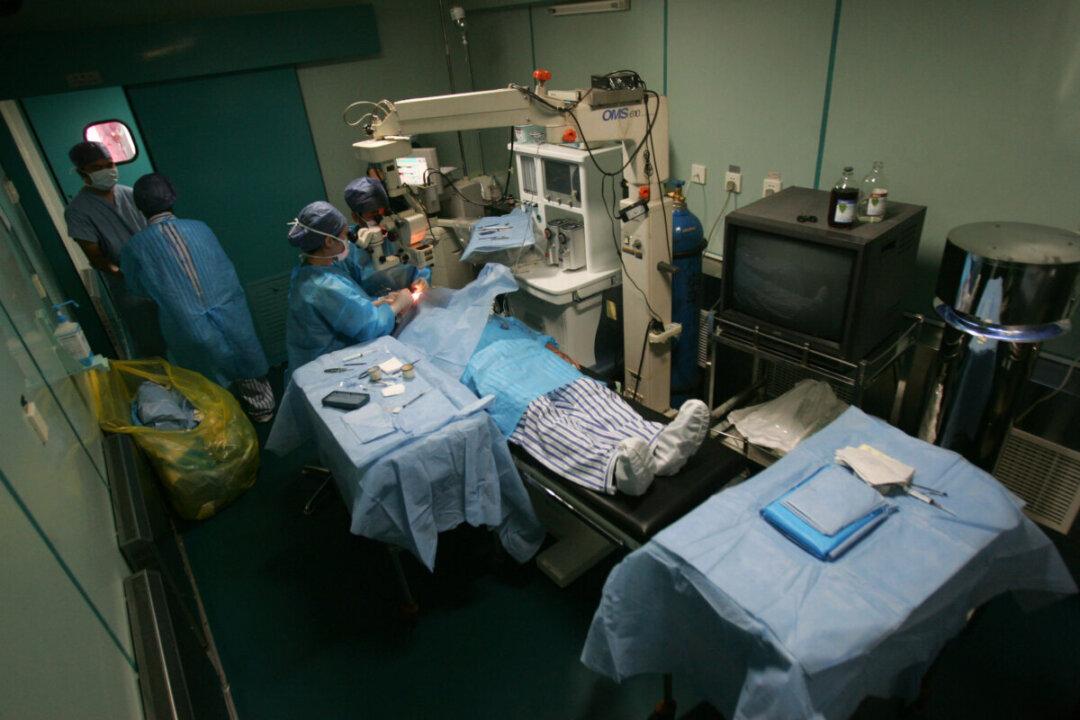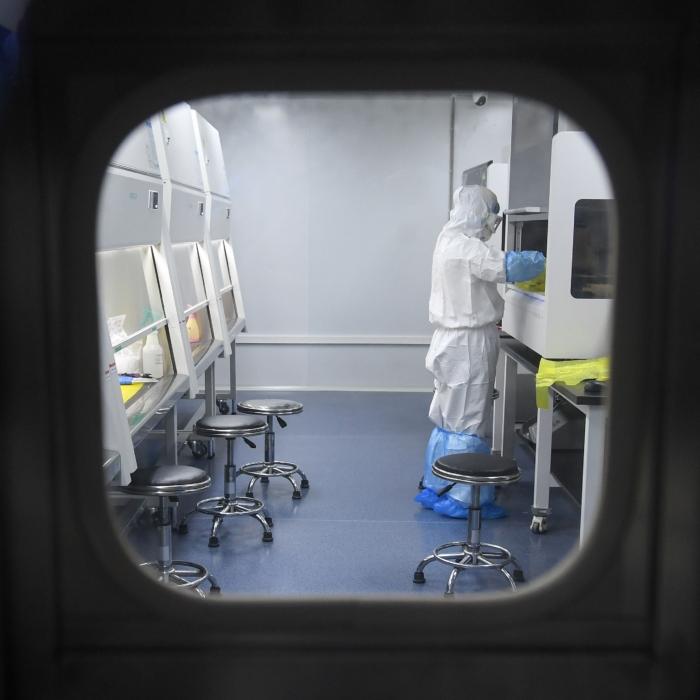China’s leading ophthalmology hospital group is staggering under yet another scandal, with the releases of a viral video showing one of its surgeons repeatedly punching a patient on the head during eye surgery. The disturbing video follows accusations of live organ harvesting and other allegations.
Ms. Ai accused Feng Guiqiang, the hospital’s president and chief surgeon, of punching patient Qin Guiying in the head with his fist during the surgery process, resulting in the 82-year-old woman becoming blind in her left eye after the surgery.
Ms. Ai posted video footage to Weibo showing Dr. Feng hitting the patient’s head three times on the operating table. Subsequently, another medical staff restrained the patient.
This post sparked public anger. In response, Guigang Aier Eye Hospital said the next day that as the doctor was performing lens removal and anterior segment vitrectomy surgery on Ms. Qin’s left eye, the partially anesthetized patient had “surgical intolerance” and tried to touch her eyes. “The doctor wanted to avoid danger. In the emergency situation, he quickly ‘hammer punched’ the patient with his hands to remind him, and there was no motive or behavior to harm the patient,” it said.
The hospital’s explanation did not convince the public. A Dec. 21 article published on Chinese news portal site Sina asked a slew of questions: Why did the patient develop intolerance during the local anesthetic surgery? Was the pre-surgery assessment adequate? Why did the surgeon use the “hammer punch” on an 82-year-old patient rather than having other medical staff help control the patient? Would the punching action aggravate the patient’s fear and make the situation worse, affecting the surgery’s outcome?
The Guigang Health Commission initiated an investigation of the local Aier Eye Hospital.
The scandal is just one of many complaints that have plagued the hospital chain in recent years. One of these was the case of Ms. Ai, who was left nearly blind in her right eye after cataract treatment at Wuhan Aier Eye Hospital in 2020. She alleges that the hospital botched the surgery, causing her vision to drop sharply and the retina of her right eye to detach.

Aier Eye Hospital Group
Aier Eye Hospital Group is China’s top eye institute, with a market value of 146.3 billion yuan ($20.5 billion). It runs more than 700 hospitals worldwide, including branches in Europe and Southeast Asia, and has more than 600 hospitals in China.Mr. Chen has no medical background. He served in the military and started a coconut juice agency and a theme park business before founding the hospital chain in 2001.
The rapidly growing hospital group, despite its financial success, has been repeatedly fined for insurance violations, price fraud, unlicensed medical providers, damaged surgical instruments, and false advertising. The hospital chain has been involved in numerous malpractice suits.
More scandals about Aier Eye Hospital Group still need to be brought to light, in Ms. Ai’s view, but “many of their medical malpractice cases end up with money in private. They [Aier Eye hospitals] are not afraid as long as it can be solved with money. They have bribed local departments at all levels and have many protection umbrellas.”
Independent writer Zhuge Mingyang told The Epoch Times: “The medical industry is exceptional. It requires professional personnel, excellent technology, a strong sense of responsibility, public interest, and moral standards.”
Organ Harvesting Allegation

Not surprisingly, Aier Eye Hospitals has also been implicated in forced organ harvesting. The World Organization to Investigate the Persecution of Falun Gong has listed Kunming Aier Eye Hospital in Yunnan Province and Nanjing Aier Eye Hospital in Jiangsu Province on its “suspected organ harvesting“ list. The two hospitals perform a remarkable number of corneal transplant procedures. In addition, Aier Eye Hospitals’ branch in Shenyang has boasted that it only takes ”about a week to a month to obtain” fresh corneas.
The Epoch Times reached out to the Aier Eye Group for comment but received no response.







